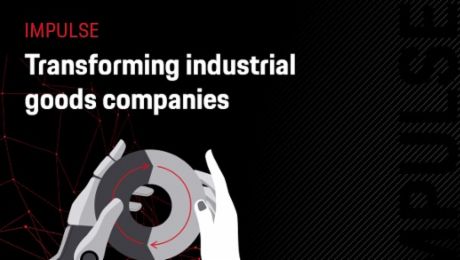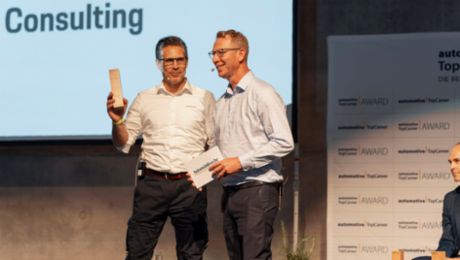Regular and structured learning on the job — which continues long after employees complete their official vocational and professional training — is becoming ever more important in everything from trades and services to commerce and industry. Highly qualified personnel who command the latest knowledge are a crucial factor in competitive success. Customers, after all, expect innovative products and services as well as intelligent solutions. And companies, whether large or small, need to adapt their business models, integrate new technologies, and develop additional skills to meet these expectations.
Innovations are coming thick and fast. In other words, time is of the essence. HR leaders are called upon to provide smart and highly flexible qualification and further training options for their workforces. This goes beyond the usual organizational aspects. It is also a matter of content. And of sound educational and instructional skills. The focus is no longer on classroom formats, but rather on digital seminars with individual performance reviews — for subjects that lend themselves to this approach. Online seminars can be both flexible and economical. For them to work, however, participants must be able to learn on their own. In other words, companies often need to instill, or at least foster, a desire to learn. And especially for electronic training programs, regular reviews and clever incentives are needed to maintain motivation over the long term. Employees need to see the value of further education. Not only financially on their pay slips, but also in opportunities for growth, new horizons, greater responsibilities, and more autonomy.
In-house company expertise
For a company’s own training programs to succeed, they need to be developed and run by people with educational expertise. One important factor here is the relevance of program content to actual practice. Ever more companies are therefore opting to recruit instructors from their own ranks and provide them with extensive training in education. Internal instructors are well received, because they already have an authenticity bonus. That in turn increases the degree to which trainees identify with their subject matter. As for the organizational side, information about these programs should be compiled on a central learning platform that is accessible to all employees.
The idea of a “learning organization” is nothing new. However, its characteristics need to be reinterpreted, at least in part. Deutsche Bank is one example of how that can work. As Germany’s largest bank and a financial institution considered “systemically relevant” on the global stage, it has to meet high standards. By its own account, Deutsche Bank is undergoing continuous further development “from a culture of experts to a culture of flexible learners.” But what in fact does that mean?

To help its employees develop further on both professional and personal levels and advance their careers, Deutsche Bank has made learning a core element of its HR strategy. The Frankfurt-based company calls this “getting better at getting better.” Its approach builds on an attractive, personalized, and diverse range of learning opportunities, designed to be available to all employees at every stage of their career. It also needs to address a range of positions. In addition to financial service providers, Deutsche Bank’s workforce includes many other specialists such as engineers, legal experts, project managers, and security professionals.
“LearningHub” is the name of Deutsche Bank’s platform that uses smart technologies to suggest individualized learning content to all employees. Users can increase their skills in precisely the areas they wish to develop. If they like the content, they can recommend it to their colleagues by sharing links and resources. They can join groups, work together, and leverage expertise. In 2023 alone, Deutsche Bank employees made use of nearly one million learning opportunities. The bank’s philosophy is that learning consists not only of acquiring new knowledge, but also of both personal and professional growth. This is the only way to build the abilities needed to keep pace with the rate of change.
Making learning more appealing
The platform’s digital learning programs can be accessed from any location at any time. One positive effect is that nine out of ten employees used its options in 2023. That represents a major step toward the goal of becoming a “learning organization,” an idea that translates to “ongoing employee empowerment.” This is so important at Deutsche Bank that its board made it a key component of its leadership agenda. The bank has invested strongly in areas such as artificial intelligence — with the aim of providing comprehensive, varied, and relevant learning content. According to the bank’s HR department, learning is ultimately “no longer a matter of taking courses but of quickly finding and applying the right knowledge and information.” Another aim is for no one to be isolated in their efforts to learn and do research. A team therefore stands ready at all times to provide technical support, inform employees about proven methods, and facilitate access to a wide range of resources. Thanks to close collaboration with the Technology, Data and Innovation division, bank employees can also access external content from leading technology companies worldwide, such as current research results, specialized knowledge, and entirely new conceptual approaches.
Deutsche Bank’s example clearly shows that a learning organization needs strong foundations, high accessibility, and appealing incentives. In addition, it must be designed with sufficient flexibility to adapt to changing times — as rapidly as progress itself occurs. The foundations consist of strategic, educational, technical, and cultural components. Accessibility requires high-performance IT solutions in conjunction with good training and solid support for all users. And the motivation to both start and continue needs to stem from the joy of learning itself. Part of that consists of honoring achievements. Valuation is a powerful engine in learning organizations, and leadership personnel should keep it humming smoothly. An emotional connection with the company is precisely what encourages employees to identify with it and help it outperform competitors on the market.
Algorithms find surprising connections
One way a learning organization can cultivate new experiences and a positive working atmosphere is to promote employee networks by innovative means. Some companies use clever algorithms to match colleagues who might not have known each other previously for what can be surprising exchanges of ideas. Deutsche Bank’s “Mystery Coffee” initiative brings employees together either virtually or in person for impromptu talks. This expands networks, and ideally encourages participants to support each other’s work in the future. Mystery Coffee is a point of pride for Deutsche Bank. Available to the workforce worldwide, it has rapidly become the company’s most successful informal learning initiative. By getting together for a coffee, employees make new connections and learn about other parts of the company. They also come to appreciate differences. From 2017 to 2023, the bank made more than 48,000 Mystery Coffee matches.
A learning organization should also be capable of upending conventions and questioning received wisdom. One example here is the “Reverse Mentoring” initiative, which flips the usual mentoring relationship and places an experienced manager in the role of mentee. Younger employees then coach the “old hands.” Here, too, Deutsche Bank relies on digital technology to generate exciting combinations. A learning organization becomes all the more successful when no one can or wants to remain outside it. Lifelong learning then attracts not only novices but everyone — including those with extensive experience. A learning organization is only as good as the degree and quality of company-wide exchange — in interdisciplinary contexts and without hierarchy-related inhibitions.
Leadership personnel should not only institute training programs. They have another important role to play in learning organizations, this time with a focus on development dialogues. Managers should hold regular talks with their team members to plan individual further training opportunities and discuss how these can advance careers. They need not limit these dialogues to individuals. Ideally, small groups can form that learn together, organize on their own, exchange ideas, and pursue shared goals. Such groups can become cornerstones of a learning organization and motivate others to take initiative as well. As always in professional life, a good corporate culture makes working more enjoyable, encourages strengths, and promotes community. Generally speaking, work also plays a significant role in the social lives of most employees. A team spirit, a conducive (learning) atmosphere, and attractive aims can quickly pay off — for both employees and the company as a whole.
Info
Text first published in Porsche Consulting Magazine.





